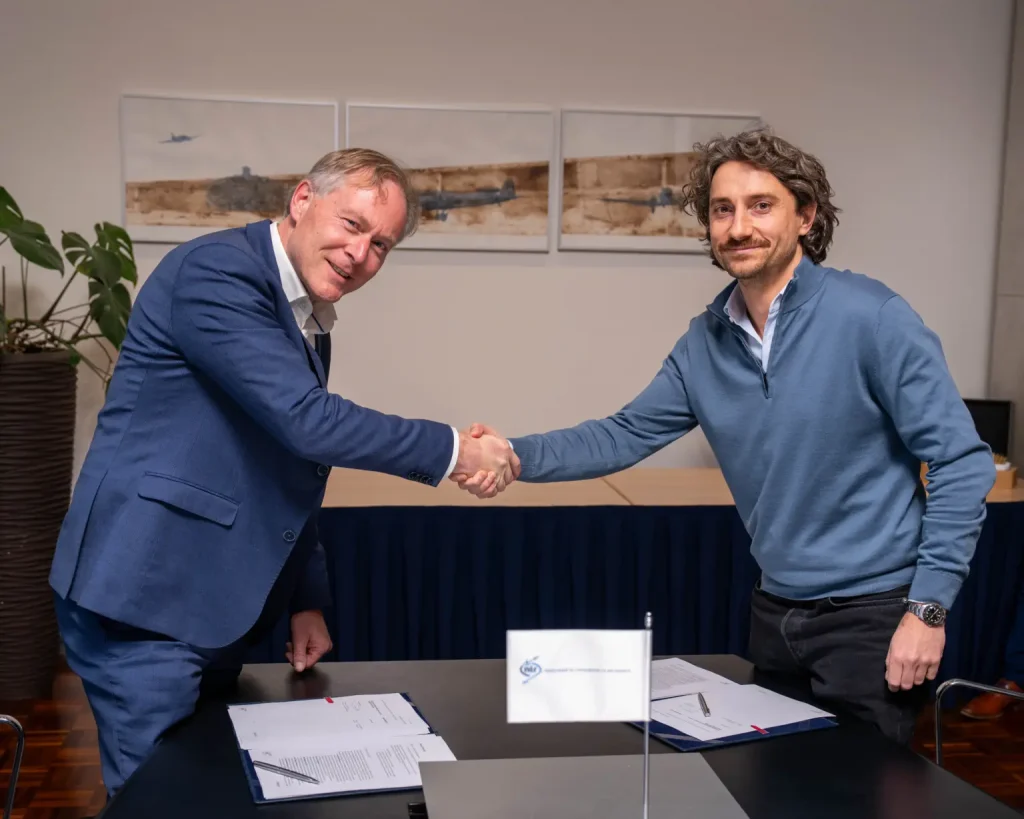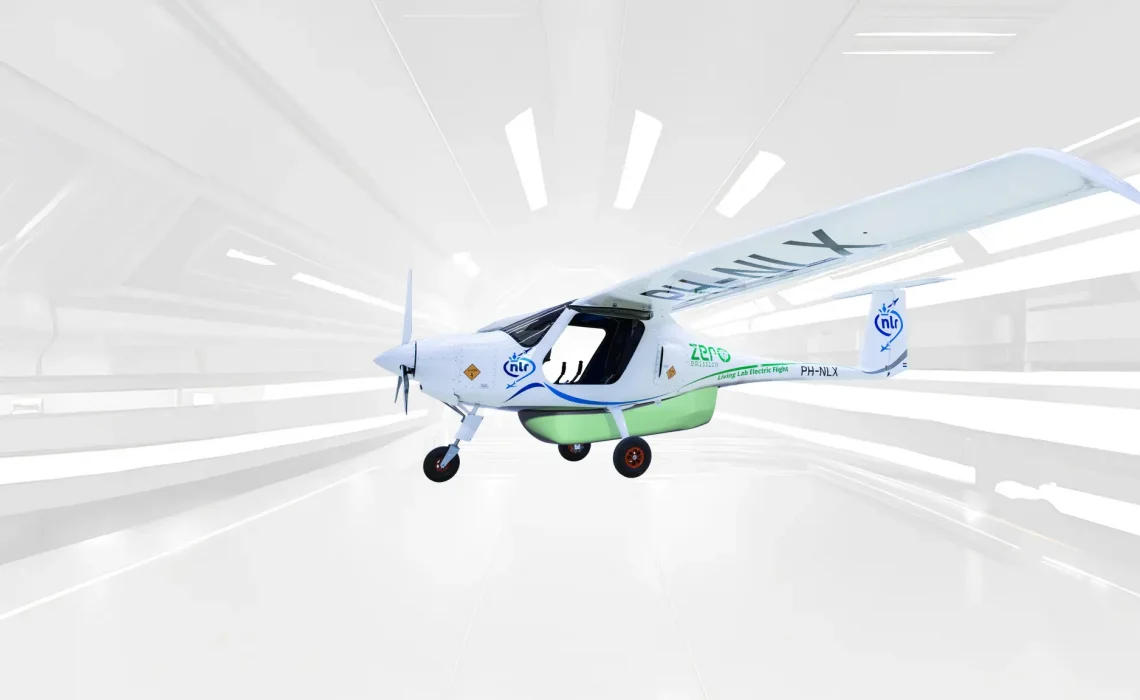To enable this manned flight on liquid hydrogen in 2026, NLR will equip its electric-powered research aircraft, the Pipistrel Velis Electro, with a hydrogen powertrain. A crucial element is the fuel cell system, which Zepp.solutions will develop in close cooperation with the research institute.
Joint focus
This agreement is a major contribution to NLR’s ‘Climate Neutral Aviation’ programme, which focuses on the development of innovative and sustainable technologies with the aim of making aviation climate-neutral by 2050 at the latest.
The new collaboration between NLR and Zepp expresses a joint focus to take concrete steps towards sustainable aviation within the Dutch ecosystem. In doing so, Zepp has the ambition to develop fuel cell systems for aviation and can make a clear contribution with this collaboration. As a launching customer in this sector, NLR offers Zepp the opportunity to demonstrate and further develop its technology in the aviation sector. The system that Zepp will develop will be integrated into the Pipistrel. This small electrically powered aircraft offers NLR the opportunity to demonstrate innovative technologies.

Demo flight
Arjen Kloosterman, NLR project leader: “‘NLR aims to use this project to gain knowledge and experience in the development and integration of hydrogen components and powertrains for manned aviation. Besides physical integration, the biggest challenges are the airworthiness and safety aspects associated with introducing hydrogen onboard an aircraft. The entire trajectory up to the demo flight in 2026 provides us with valuable knowledge and insights for hydrogen technology integration and is thus a prelude to further developments and implementation of this technology in the aviation sector. The collaboration with Zepp is an essential step for us and will significantly contribute to NLR’s Climate Neutral Aviation programme.”
Jan Bot, co-founder of zepp.solutions, concurs. “Our fuel cell technology has already proven itself in various sectors. We bring a lot of knowledge and experience when it comes to developing efficient and compact fuel cell systems. However, aviation offers completely different challenges. This cooperation, and to be able to learn from each other in this way, is therefore incredibly valuable. In developing the hydrogen system for the Pipistrel, together with NLR, we will not only demonstrate the potential of hydrogen in aviation but also learn lessons that can be of great value to this sector.”

